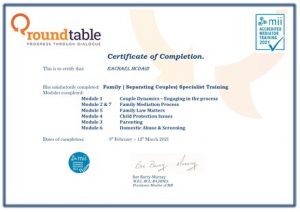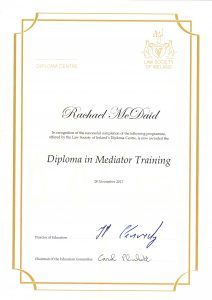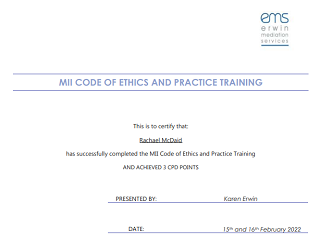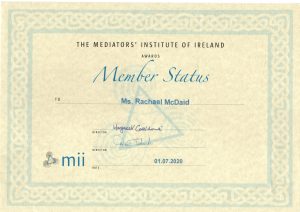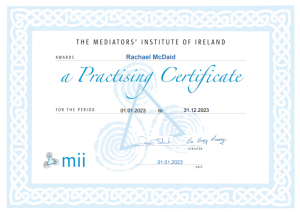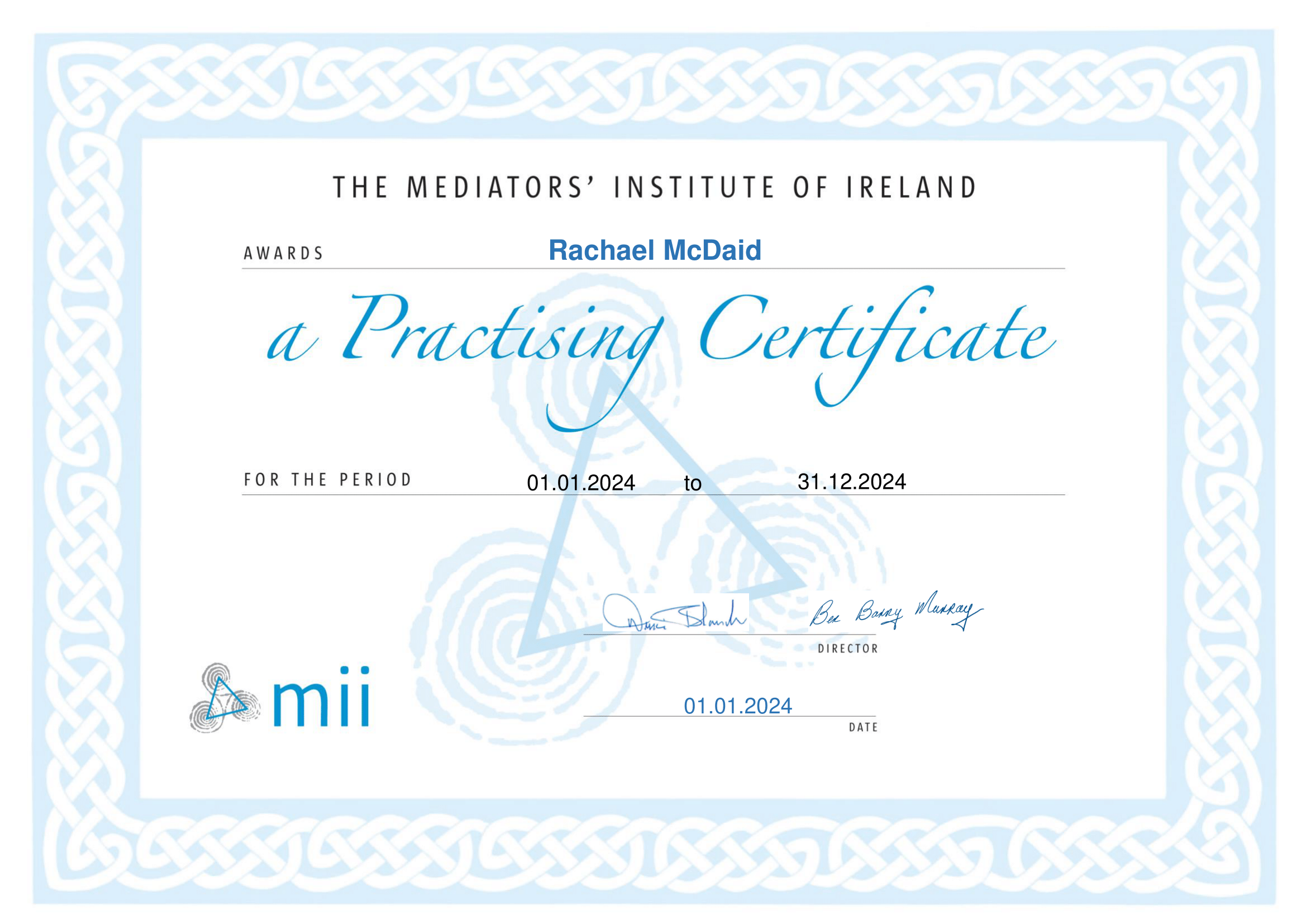Private Mediation Service
Reach agreement and stay out of Court – resolve disputes in Family, Property, Contract, Personal Injuries, Commercial, Community and Probate.
In Family matters reach agreements on Child Custody & Access and Child Maintenance, Spousal Maintenance, the Family Home, Living Arrangements, Property, Pensions and other assets.
Immediate Appointments
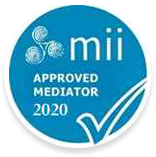
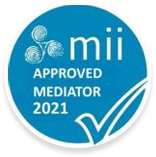
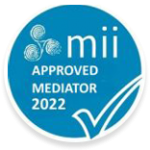
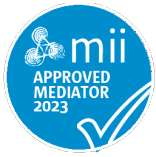
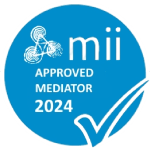

What is Mediation?
An informal but structured, voluntary and confidential process to reach a legally binding or non legally binding agreement between parties, usually two, which is done outside of the Court system but in accordance with the law.
Legal Definition of Mediation
The Mediation Act 2017 describes mediation as “a confidential, facilitative and voluntary process in which parties to a dispute, with the assistance of a Mediator, attempt to reach a mutually acceptable agreement to resolve the dispute”.
Link to the Mediation Act 2017.
Benefits of Mediation
Mediation is a cost effective way of resolving disputes in a legally binding or non legally binding manner and provides the security of confidentiality.
The agreement drafted by the Mediator at the end of the mediation process is called a Mediation Settlement. The parties to the mediation decide whether they want a legally binding Mediation Settlement or a non legally binding Mediation Settlement. This document is signed by the parties and the Mediator at the end of the process.
In Legal Separation or Divorce cases
In family law cases when mediation has completed and the Mediation Settlement has been signed the Solicitors will then put together the paperwork for the Legal Separation or Divorce court application using the Mediation Settlement document as Terms of Consent. The Solicitors will then represent the parties at the “On Consent and Uncontested” Legal Separation or Divorce court hearing date.
Agreement to Mediate
In advance of the start of mediation the parties will receive an Agreement to Mediate document.
This document explains the mediation process and sets out the ground rules.
Why is Mediation So Good?
COSTS
The costs of engaging a Mediator to settle a dispute are far less than going to Court. The costs of Mediation are on average 10% of the costs of Court proceedings.
EFFICIENCY
The matter can be resolved at a faster pace and in a shorter time frame. Some disputes can be resolved in one day and some over a few weeks.
PERSONAL
Each side gets individual time with the Mediator to explain their position, how the dispute has affected them and offer up suggestions to solve the dispute.
LESS STRESS
Stress can cause ill health. Mediation aims to dissolve the stress that flourishes in the battlegrounds of disputes. Mediation can bring the parties to a happier, healthier state of mind. Delivering positive effects for the physical and mental well being of the parties.
COMMUNICATION
Facilitates direct communication between the parties. If an agreement is reached to resolve the dispute, this agreement has been created by both parties themselves so it is more likely to succeed long term.
SELF DETERMINATION
Unlike Court where decisions are imposed – where one party will be the winner and the other party the loser. In Mediation both parties will win and both parties will lose some but the end result will be decided by the parties themselves.
Meet your Mediator
My name is Rachael.
In 2004, I qualified as a Solicitor with O’Rourke Reid Law Firm and was admitted to the Law Society of England and Wales and the Law Society of Ireland. I worked in legal practice in Dublin and in Northern Ireland before switching track to work in my parents’ business and later in my husband’s event business. I divorced in 2014.
In May 2017, I completed my Diploma in Mediator Training with the Law Society of Ireland and became a member of the Mediators Institute of Ireland.
I have experience of conflict in both personal life and business life.
Conflict is generally unhealthy and can have a really negative impact on our health and lives. I want to help people in conflict situations to reach a peaceful resolution to whatever it is causing the conflict and to move on from it. I hope I can help to do that for everyone who engages me.

Rachael McDaid
LLB. MII
